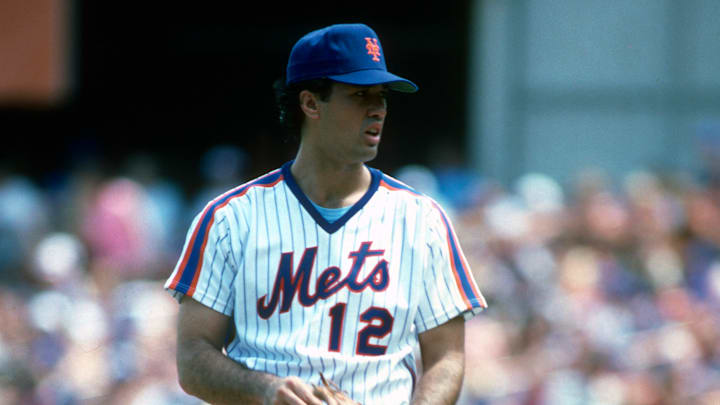
NY Mets trade with the Kansas City Royals for David Cone is their franchise’s worst
The Mets had a knack for picking up young and talented pitchers in the 1980s. After appearing briefly with the Kansas City Royals in 1986, pitcher David Cone was packaged to the Mets in the franchise’s worst trade ever made.
Along with Chris Jelic, Cone went to New York in exchange for Rick Anderson, Mauro Gozzo, and Ed Hearn. One of these things is not like the other.
The three players Kansas City received hardly played for the team—in Gozzo’s case, never making the majors with the Royals at all.
Cone, on the other hand, rose quickly and in 1988 was an All-Star and third-place finisher in the Cy Young race. He went 20-3 with a 2.22 ERA in his breakout season with the Mets.
Amazingly, the Royals didn’t learn their lesson with Cone. After he re-signed with them after the 1992 campaign, they traded him to the Toronto Blue Jays in April of 1995 for two lifetime minor leaguers and Chris Stynes. Cone was hardly done with pitching well and burned the Royals twice in trades.
The Mets had their own experience with this in mid-1992 but at least they got some talent back. Jeff Kent and Ryan Thompson were the two players they received. Unfortunately, Kent was traded a few seasons later in the Carlos Baerga move—one of the flops made by New York.
For the Royals, it’s the first Cone trade that haunts them the most.
